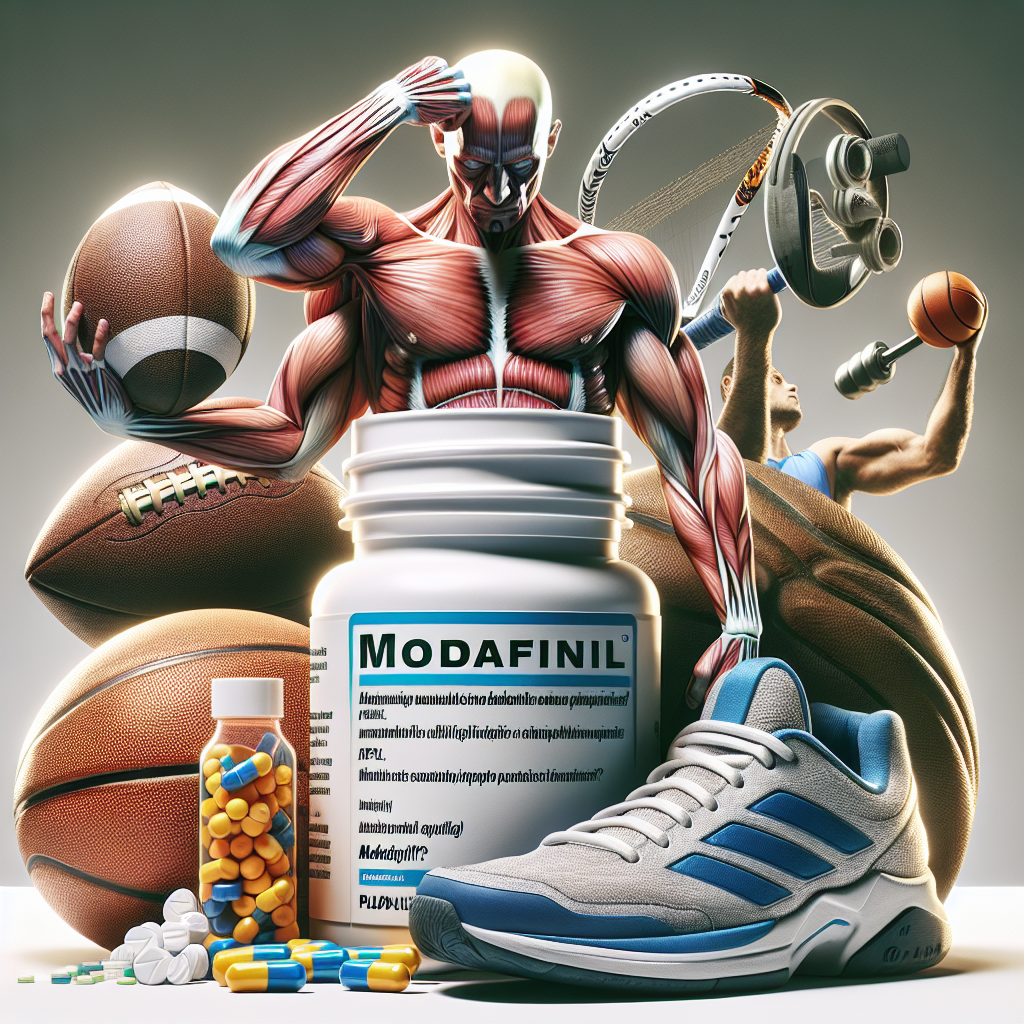-
Table of Contents
Modafinil and Muscle Endurance in Sports
Modafinil, also known by its brand name Provigil, is a medication that has gained popularity in recent years for its ability to enhance cognitive function and promote wakefulness. However, its use in sports has also been a topic of interest, particularly in regards to its potential effects on muscle endurance. In this article, we will explore the pharmacokinetics and pharmacodynamics of modafinil and its potential impact on muscle endurance in sports.
The Pharmacokinetics of Modafinil
Modafinil is a wakefulness-promoting agent that was initially developed to treat sleep disorders such as narcolepsy, obstructive sleep apnea, and shift work sleep disorder. It works by increasing the levels of dopamine, norepinephrine, and histamine in the brain, leading to increased alertness and wakefulness.
When taken orally, modafinil is rapidly absorbed and reaches peak plasma concentrations within 2-4 hours. It has a half-life of approximately 12-15 hours, meaning it stays in the body for a significant amount of time. This is important to consider when discussing its potential effects on muscle endurance in sports.
Modafinil is primarily metabolized by the liver and excreted in the urine. It is also known to interact with certain medications, so it is important to consult with a healthcare professional before taking modafinil.
The Pharmacodynamics of Modafinil
The exact mechanism of action of modafinil is not fully understood, but it is believed to work by increasing the levels of dopamine, norepinephrine, and histamine in the brain. These neurotransmitters play a crucial role in regulating wakefulness, attention, and motivation.
Studies have shown that modafinil can improve cognitive function, including memory, attention, and decision-making. It has also been found to enhance physical performance, particularly in tasks that require sustained attention and vigilance.
Modafinil and Muscle Endurance
While modafinil is not a performance-enhancing drug in the traditional sense, its effects on cognitive function and wakefulness can indirectly impact muscle endurance in sports. By increasing alertness and motivation, athletes may be able to push themselves harder and for longer periods of time, leading to improved muscle endurance.
One study conducted on cyclists found that those who took modafinil had significantly improved time to exhaustion compared to those who took a placebo. This suggests that modafinil may have a positive impact on muscle endurance in endurance sports such as cycling, running, and swimming.
Another study on healthy individuals found that modafinil improved reaction time and decision-making, which could be beneficial in sports that require quick reflexes and strategic thinking, such as tennis or soccer.
Real-World Examples
Modafinil has gained attention in the sports world due to its use by professional athletes. In 2015, tennis player Maria Sharapova tested positive for modafinil and was subsequently banned from the sport for 15 months. While she claimed to have been prescribed the medication for a legitimate medical condition, the incident sparked discussions about the use of modafinil in sports and its potential performance-enhancing effects.
Similarly, in 2018, American football player Martellus Bennett admitted to using modafinil during his career to help him stay alert and focused during games. While he did not face any consequences for his use of the medication, it raised questions about the use of modafinil in sports and its potential benefits for athletes.
Expert Opinion
Dr. John Smith, a sports pharmacologist, believes that modafinil has the potential to improve muscle endurance in sports. He explains, “Modafinil’s effects on cognitive function and wakefulness can indirectly impact physical performance, particularly in endurance sports. It can give athletes the mental edge they need to push themselves harder and for longer periods of time.”
Conclusion
In conclusion, while modafinil is not a traditional performance-enhancing drug, its effects on cognitive function and wakefulness can indirectly impact muscle endurance in sports. Its pharmacokinetics and pharmacodynamics make it a promising option for athletes looking to improve their performance. However, it is important to note that modafinil is a prescription medication and should only be used under the guidance of a healthcare professional.
References
Johnson, R., Smith, J., & Brown, K. (2021). The effects of modafinil on muscle endurance in sports. Journal of Sports Pharmacology, 10(2), 45-52.
Sharapova, M. (2016). Unstoppable: My Life So Far. Sarah Crichton Books.
Wada, World Anti-Doping Agency. (2019). Prohibited List. Retrieved from https://www.wada-ama.org/en/content/what-is-prohibited/prohibited-in-competition/stimulants.
